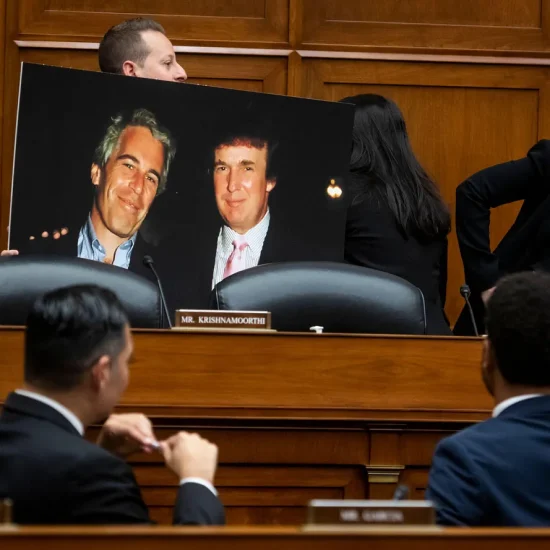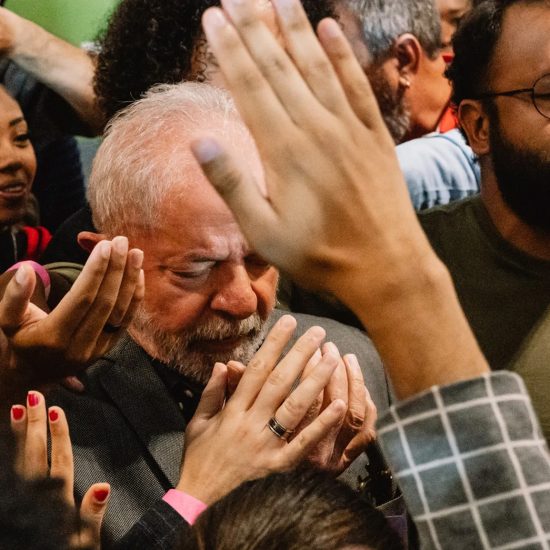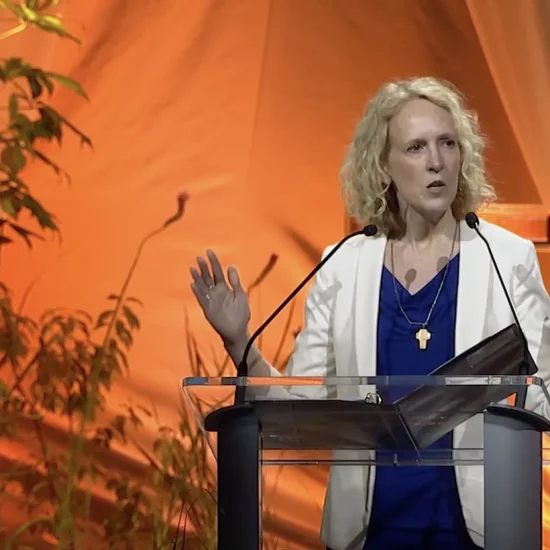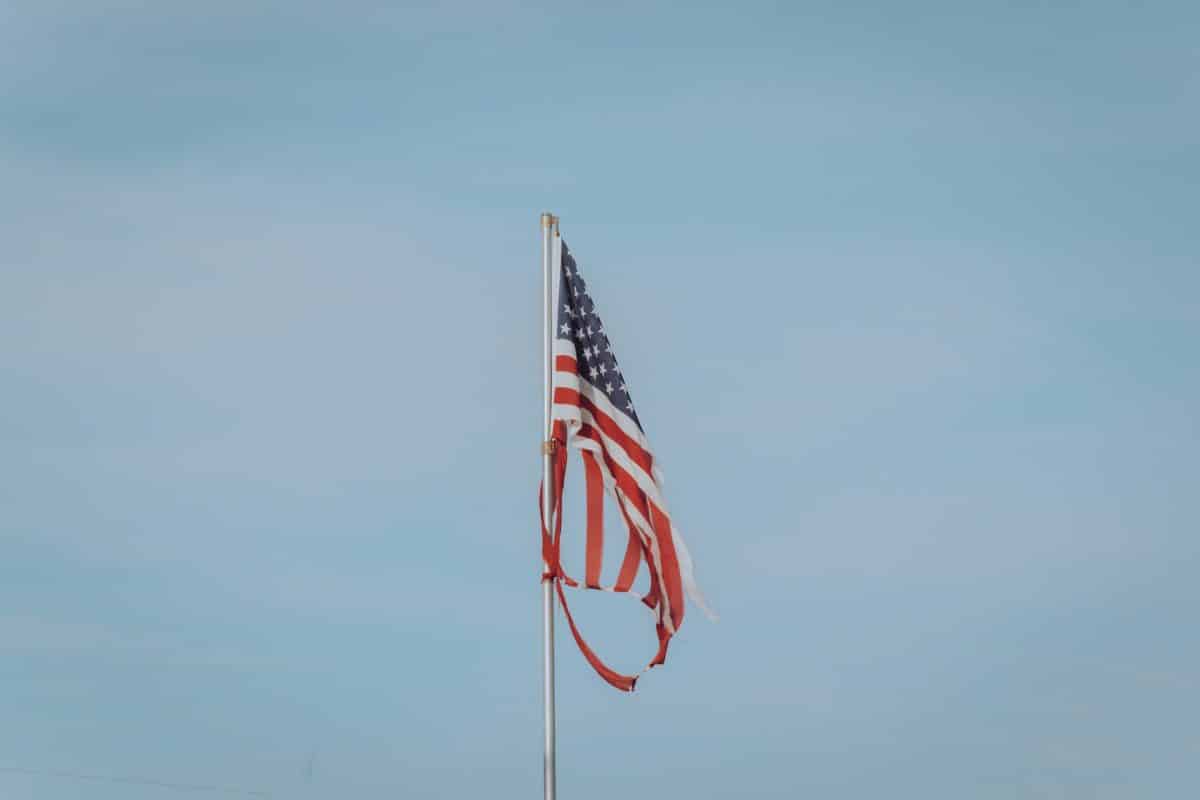
The all-American story faces precarity and there’s a biblical blueprint for how it happened. The American story never had a true foundation and was always on the cusp of a great fall, but now it is coming apart at the seams. If ever a Bible story reads like our national mythology, it’s Jesus’s story of the rich farmer in Luke 12. If there was ever a character in the New Testament that seems like “our guy,” the rich farmer is our guy. Hardworking, successful, rich, ambitious — and he has a vision. He could probably convince the Shark Tank investors to put a pile of money into his expansion project.
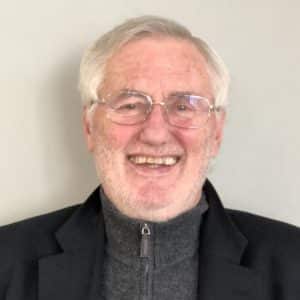
Rodney Kennedy
The all-American story comes out whole hog for the hogs. Those who have plenty desire to have more. The rich farmer seems afflicted with what has been called “Social Darwinism.” The application of the brutal “survival of the fittest” to society and the economy should be dubbed “anti-social Darwinism.” As an unrepentant, churchless, born-again antisocial Darwinist, the rich farmer comes out in favor of himself, bigger barns, more money, more acquisitions, more consumption, and the all-American slogan, “eat, drink, and be merry.” But none of this shows up at first in the story. He looks like a good guy, a basically good person who works hard, takes care of business, and is a huge success. Today, he would be a run-of-the-mill billionaire buying larger private jets, yachts, and mansions.
The story, having started with such adulation for the rich man, turns a darker color when the voice of God invades the property: “‘You fool! This very night your life is being demanded of you. And the things you have prepared, whose will they be?” This doesn’t add up in the American imagination about being rich. The all-American hero is dubbed “a fool.” That’s not the kind of language we usually use in polite company, at least not until Donald Trump weaponized rhetoric and branded people with an array of nasty words. Can you imagine anyone calling the CEO of Berkshire Hathaway a fool, or the CEO of Goldman Sachs? Well, Lloyd Blankfein, as CEO, once did say that Goldman Sachs was doing “God’s work.” I wouldn’t say that makes him a fool, but I roll my eyes at his comment. Forbes puts out an annual list of the richest people in the world. It is not called the “Fool’s List.” If anything, it reads like the list of the greatest idols in our culture. People we adore, worship, emulate, and want to be. I am convinced that poor people support the 1% because they want to be in the 1%. If we aren’t rich, we probably want to be rich. This story doesn’t make American sense.
Let’s consider that this may be the right story for us to be reading because of our current economic difficulties. Theologically, some people would say that our chickens are coming home to roost because our greed has grown out of control. I don’t think it is clear how greed is connected to our economic troubles. I have friends convinced that we are suffering because some became too greedy. We continue to be troubled, they tell me, because the rich are getting very, very, very rich and the poor are getting very, very, very much poorer. In this reading, greed has no limits or shame. Greed has to increase because it is the necessary engine for economic growth, and we believe that the economy has to always be growing. We once had millionaires, now we have billionaires. Who will be the first trillionaire? How rich do we need to be to have enough? I’m not sure.
The rich farmer seems oblivious to his own greed. How subtle. He sees no warning signs on the horizon. Like people who ignore floods, hurricanes, and forest fires by denying climate change, the rich farmer denies that he is greedy while howling for more. The one characteristic associated with greed is the presumption that no matter how much we have we need “more.” We need more because we cannot be sure that what we have is secure. So, the more we have the more we must have. The rich farmer is a living caricature of the “more” syndrome: And he thought to himself, “What should I do, for I have no place to store my crops?” Then he said, “I will do this: I will pull down my barns and build larger ones, and there I will store all my grain and my goods.” He’s fixated on “I” – a raging individualism and he has what one preacher dubbed “more-itis.”
There’s a gnawing insecurity between the words uttered by the confident rich farmer. Perhaps a bit of St. Augustine can help here. He says that “the essential context for ambition is a people corrupted by greed and sensuality.” For all his boasting about bigger barns and living it up, the rich man was afraid of dying and he lived in fear of the loss of status and comfort. He was greedy for significance, and he dreamed that his bigger barns would give him significance. Bigger barns were the signs of his status and significance and the means of sustaining status and well-being, but ironically, the bigger the barns the more social anxiety and insecurity in the rich man’s mind. The irony drips from the farmer’s words – the one with the most is the one who is the most anxious in irrational and uncaring ways.
Yet in America, we don’t recognize this as greed. We call it a vision, a game plan, a business strategy, good sense. I am suggesting that we have lost the ability to see how greed possesses our lives. We live in a culture that celebrates and desires wealth. I am a preacher of the gospel of Jesus, who teaches us that we are gripped by greed. Mixed messages? Of course. Greed, the most subtle of vices, has managed to get inside the church, be baptized, and become a virtue. When evil becomes good, we should know we have a problem. Our parents told us to work hard, to get ahead, to be the best we could be. I am not convinced this was a totally good idea, because greed has insinuated itself into all these parental lessons and we don’t even realize it. How subtle!
Now, look at the story once more. Do you identify with the rich farmer? Are you at all uneasy about the judgment that this man, in God’s sight, has been foolish, and that now he must face the consequences of his greed? After all, as we have seen, his greed is invisible to us. I am not suggesting to you that this man went to hell for being rich. The story doesn’t address the subject. I am saying that something is not exactly right in this man’s life. His All-American desire, expressed in the All-American slogan, “eat, drink, and be merry,” turned out to be insufficient for a flourishing and meaningful life.
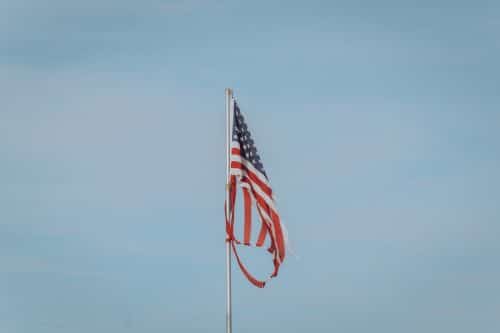
Ralph (Ravi) Kayden / Unsplash
Sometimes we need to read an Old Testament story to get at the meaning of a New Testament story. So, let’s go back to the story of Pharaoh in the Old Testament book of Exodus. The story of the rich farmer parallels the story of Pharaoh. The Old Testament story is not subtle, and it shows the greed of Pharaoh in living color. Pharaoh had a surplus of food. In fact, he controlled the food supply of the ancient world. Walter Brueggemann reminds us that Pharoah is a metaphor. He shows us what raw, earthly power looks like. He is a stand-in for all the greedy, powerful people who take what they want and in doing so create damage for all others and place all others in situations of precarity. Pharaoh has a food monopoly, and he uses it as a weapon. Pharaoh shows us greed as the principal vice, greed before we baptized it, made it a virtue, and turned it into a necessity for economic growth.
And Pharaoh has a man of God on his side. His name is Joseph. The story tells us that Joseph bought all the land of Egypt for Pharaoh. There was a severe famine and Joseph bought all the land at a cheap price. Because Pharaoh has so much land and produces so much food, he needs granaries where he can store his surplus. Now remember the words of our rich farmer: and he thought to himself, “What should I do, for I have no place to store my crops?” Sounds like Pharaoh.
Now, please look at what Pharaoh does. He used forced labor, made slaves of all the people, including the Jews, and put taskmasters over them, and they were forced to build supply cities to store the food. The store-house cities are an ancient parallel to the great banks and insurance companies where surplus wealth is kept among us. Now again remember our rich farmer: he built bigger barns. He acts like Pharaoh.
Pharaoh, not content to have all the food supply, not content to have all the land, not content to enslave all the people, decides that he will cut his costs by taking away the supplies that his cheap labor had to use to make bricks. “You shall no longer give straw to the people to make bricks as before. They still must meet their daily quota of bricks, but they also have to gather their own straw. Pharaoh then accused his slaves of being lazy. “You are lazy and that’s why you pretend that you want to go and sacrifice to your God.” Pharoah is the definition of greed. He is greed revealed.
The rich farmer is subtle greed, invisible greed, all-American greed. He is the tolling of the last bell for the all-American story of excess capitalism, the Market God, Mammon, money, success, and everything that he thought was Christian because it was so American. When the American dream fails, when the all-American hero flounders, we are all in trouble.
Rodney Kennedy has his M.Div. from New Orleans Theological Seminary and his Ph.D. in Rhetoric from Louisiana State University. The pastor of 7 Southern Baptist churches over the course of 20 years, he pastored the First Baptist Church of Dayton, Ohio – which is an American Baptist Church – for 13 years. He is currently professor of homiletics at Palmer Theological Seminary, and interim pastor of Emmanuel Friedens Federated Church, Schenectady, New York. His sixth book – The Immaculate Mistake: How Evangelicals Gave Birth to Donald Trump – is now out from Wipf and Stock (Cascades).

